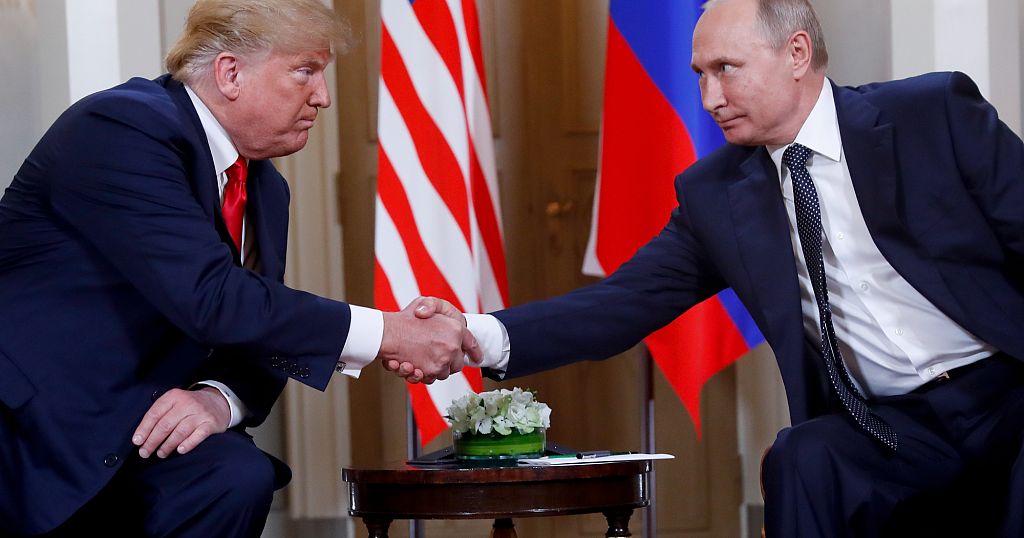Russian President Vladimir Putin signaled plans for a potential summit with U.S. President Donald Trump as early as next week, possibly hosted by the United Arab Emirates, during a joint press conference with UAE leader Mohamed bin Zayed Al Nahyan in Moscow on Thursday. The announcement came hours before a White House deadline for Russia to demonstrate progress toward resolving its three-year invasion of Ukraine, which has claimed tens of thousands of lives and displaced millions.
Putin emphasized the UAE’s role as a diplomatic mediator, stating, “We have many friends willing to help organize such events,” while his foreign policy adviser, Yuri Ushakov, confirmed a venue for the meeting had been agreed upon “in principle.” However, the Kremlin ruled out Ukrainian President Volodymyr Zelenskyy’s participation in initial talks, despite earlier U.S. openness to the idea. “A U.S.-Russia dialogue must be prioritized to ensure productivity,” Ushakov asserted, underscoring Moscow’s insistence on bilateral negotiations.
The White House had not publicly responded by Thursday evening, leaving uncertainty over whether the proposed summit would delay threatened sanctions against Russia. Putin’s overture also diverges sharply from the Biden administration’s policy of excluding Ukraine from no peace talks—a stance Zelenskyy reiterated as he prepared to consult European leaders on security guarantees and ceasefire terms. “Decisions about Ukraine cannot be made without Ukraine,” he declared on Telegram, noting that Russian attacks persist despite Trump’s appeals for de-escalation.
If realized, the meeting would mark the first high-level U.S.-Russia dialogue since 2021, when President Joe Biden met Putin in Geneva. While Trump’s team has framed such diplomacy as critical to ending the war, analysts caution that Moscow and Kyiv remain fundamentally divided on terms for peace. Putin has repeatedly rejected concessions, demanding recognition of territorial gains in eastern Ukraine, while Zelenskyy insists on full withdrawal of Russian forces.
Amid stalled Western-led mediation efforts, a Gallup poll published Thursday revealed shifting sentiment within Ukraine, with growing support for negotiations to halt the bloodshed. The UN estimates over 12,000 civilians have been killed since the invasion began, alongside widespread infrastructure destruction. Western officials allege Russia is leveraging drawn-out talks to consolidate military gains—a charge the Kremlin denies.
Trump’s approach to the conflict has evolved during his presidency, starting with conciliatory rhetoric toward Putin before adopting a firmer tone in recent months, including threats of escalated sanctions. Meanwhile, European leaders face mounting pressure to shape the diplomatic landscape, with Zelenskyy stressing that continental security “requires Europe’s direct involvement.”
As deadlines loom and civilian casualties mount, the proposed Putin-Trump summit underscores both the urgency and complexity of brokering a path to peace—one that balances geopolitical stakes with Ukraine’s sovereignty demands.
